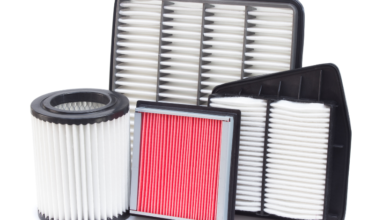What Is Eliquis and Why Is it Prescribed?

Eliquis is a brand name for the drug Apixaban.
This is an anticoagulant medication commonly called a blood thinner.
An oral prescription, the medicine has apixaban as its active ingredient.
Eliquis is a factor Xa inhibitor; it blocks the action of factor Xa. This is a clotting protein in the blood that prevents blood clots from forming or growing larger.
Why Is Eliquis Prescribed?
Eliquis is mainly prescribed for multiple important health conditions that are blood clotting related:
- Stroke and Blood Clot Prevention in Atrial Fibrillation (AFib): Eliquis reduces the risk of stroke and blood clots in people with atrial fibrillation.
- Treatment of Blood Clots: Eliquis is also used to treat blood clots in the veins of the legs, known as deep vein thrombosis (DVT), and in the lungs, known as pulmonary embolism (PE).
- Preventing Recurrence of DVT and PE: After initial treatment for DVT or PE, Eliquis can be prescribed to reduce the risk of these conditions recurring.
- Prevention of DVT and PE After Surgery: For patients who have undergone hip or knee replacement surgery, Eliquis helps prevent the development of DVT and PE.
Main Facts:
Eliquis is generally taken twice a day with nothing specific about food timing; this makes it a very convenient medicine.
This medicine does not need regular blood tests to monitor how well it is performing. Plus, it has fewer interactions with other medications and foods, so it is a more manageable option for many patients.
Foods to Avoid While Taking Eliquis
Dietary considerations are an important aspect of managing health while on Eliquis. Some foods and drinks can interact with the medication, which can then influence its potency or increase side effects.
You should avoid:
Green Leafy Vegetables: While vegetables are generally healthy, those high in Vitamin K, such as spinach, kale, and other leafy greens, should be consumed very carefully. Vitamin K can interfere with the usefulness of Eliquis, so limit intake and keep a consistent level in your diet.
Green Tea and Cranberry Juice: Both green tea and cranberry juice can affect blood clotting; they are best avoided while taking Eliquis. These drinks can either improve or reduce the drug’s effects, which can have some complications.
Grapefruit and Grapefruit Juice: Grapefruit products are infamous for interacting with many medications – even Eliquis. Grapefruit can shoot up the drug levels in your bloodstream increasing risks of bleeding.
Cheese and Butter: These dairy products are high in saturated fats, which are not good for those taking Eliquis. High saturated fat intake can negatively impact cardiovascular health, something to be particularly mindful of if you are already dealing with DVT or PE.
Processed Meats: Foods high in sodium, processed meats for example, should also be avoided. High sodium intake can add to hypertension and other heart issues, which can make your treatment with Eliquis far more complicated.
Gingko Biloba: Mostly used for its cognitive benefits, Gingko Biloba can act as a blood thinner. It shouldn’t be taken with Eliquis.
Turmeric: It has anti-inflammatory properties, which can affect blood clotting. It’s best to avoid using it in large quantities if you are on Eliquis.
White Willow: This herb has natural aspirin-like effects that compound the blood-thinning effects of Eliquis.
Managing Your Diet on Eliquis
Eliquis has its benefits but you cannot ignore your diet in the treatment process – it’s a small price to pay for your peace of mind and reducing blood clot risks.
One has to avoid certain foods and herbs to make sure that the medicine works well enough to avoid life-threatening blood clotting conditions. Taking care of your diet is also one helpful way of avoiding side effects.
To know more, visit Canadian pharmacy Online





